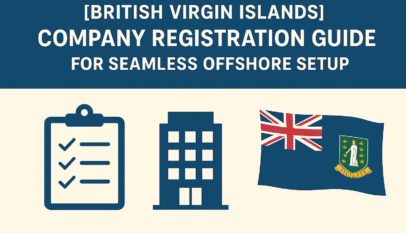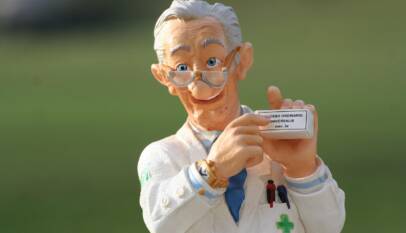
Finding engaging and enjoyable activities for adults with disabilities can significantly enhance their quality of life. Incorporating tailored experiences not only fosters independence and confidence but also promotes social connections and a sense of belonging. From art and music therapy to adaptive sports and gardening, a variety of options are available to suit different interests and abilities.
Exploring these activities allows individuals to develop new skills and discover passions they may not have had the opportunity to pursue before. Whether it is participating in group classes or enjoying solo projects, adults with disabilities can benefit immensely from meaningful engagement.
This blog post aims to highlight various activities specifically designed for adults with disabilities while addressing practical considerations to ensure an inclusive experience. Readers will find valuable insights and suggestions that cater to diverse needs, helping to create enriching environments for all participants.
Adaptive Sports and Physical Activities
Adaptive sports and physical activities offer individuals with disabilities opportunities to engage in fitness, teamwork, and social interaction. These activities are designed to accommodate various needs, enhancing physical health and promoting inclusion in community activities.
Team Sports
Team sports provide camaraderie and cooperation, making them especially appealing for adults with disabilities.
Popular options include:
- Wheelchair basketball: A fast-paced game that adapts traditional basketball rules and equipment.
- Sitting volleyball: Played on the floor, allowing players with lower limb disabilities to participate fully.
- Adaptive soccer: Modifications can include smaller teams and specific accommodations for players.
These sports not only promote physical fitness but also enhance communication and teamwork skills. Participation can improve self-esteem, as players experience achievements together.
Aquatic Exercises
Aquatic exercises provide a low-impact environment that is ideal for individuals with mobility limitations. Water buoyancy reduces strain on joints, making movement easier.
Activities may consist of:
- Water aerobics: Structured classes combining cardiovascular and strength training in water.
- Swimming: Engaging in laps or guided sessions tailored to individual capabilities.
- Therapeutic swimming: Focuses on rehabilitation and improving range of motion.
Participants often report increased flexibility and reduced pain after regular aquatic activities. The soothing properties of water also help foster relaxation.
Cycling and Wheelchair Racing
Cycling can be adapted for individuals of differing abilities, including hand cycles or tricycles eliminating balancing challenges.
Key benefits include:
- Hand cycling: Allows those with lower limb disabilities to enjoy cycling independently.
- Recumbent bikes: Offer comfortable seating, enabling longer rides for those with endurance challenges.
Wheelchair racing presents another exhilarating option. Adaptive racing chairs are designed for speed and maneuverability, allowing athletes to participate in competitive events.
Both activities promote cardiovascular fitness and independence, enhancing overall motivation and enjoyment.
Outdoor Adventures
Outdoor adventures provide unique opportunities for experiences in nature.
Adaptations might include:
- Adaptive hiking: Use of all-terrain wheelchairs or guided tours for easier navigation on trails.
- Rock climbing: Facilities often provide harnesses and support systems for climbers with diverse abilities.
- Fishing and camping: Accessible equipment opens outdoor activities to individuals who may face mobility challenges.
Engaging in these activities helps develop confidence and resilience while fostering a connection to nature and community.
Creative and Social Pursuits
Engaging in creative and social activities offers adults with disabilities opportunities for self-expression and connection. These pursuits can enhance well-being, build skills, and foster community ties.
Art and Craft Workshops
Art and craft workshops provide a platform for creative expression. Participants can explore various mediums, including painting, pottery, and textile crafts. These workshops often allow individuals to create personal projects, which can boost self-esteem and provide a sense of accomplishment.
Incorporating adaptive tools ensures accessibility. Instructors may offer guidance tailored to each individual’s needs. Group settings promote social interaction, enabling friendships to form. These workshops often culminate in exhibitions, showcasing participants’ work and fostering pride in their creations.
Dance and Music Therapy
Dance and music therapy harness the power of rhythm and movement for therapeutic benefits. These activities can improve motor skills and coordination while promoting emotional expression through body movement or sound.
Sessions are typically structured to cater to various skill levels. Instruments and accessible dance styles ensure everyone can participate comfortably. Additionally, these therapies create an inclusive environment where body awareness and self-esteem can flourish.
Such classes often emphasize collaboration, encouraging participants to work together, which strengthens social bonds and promotes teamwork.
Cooking and Baking Classes
Cooking and baking classes focus on practical skills and fostering independence. Participants learn essential culinary techniques, such as meal preparation, safety, and hygiene practices.
Classes are designed to be hands-on, allowing individuals to actively engage in preparing dishes. This can lead to enhanced confidence in the kitchen and an ability to create meals for themselves or share with others.
Group cooking sessions also facilitate interaction, often resulting in enjoyable social experiences. Sharing the results of their efforts can be rewarding and promote a sense of community.
Garden and Nature Activities
Garden and nature activities provide a connection to the outdoors, fostering relaxation and enjoyment. Participants can cultivate plants, learn about gardening techniques, and understand the importance of biodiversity.
Gardening can be therapeutic, improving mood and encouraging physical activity. Raised beds or adaptive tools can make gardening accessible for individuals with varying mobility levels.
Group gardening projects allow participants to work together, enhancing social skills and cooperation. Nature walks or outdoor exploration further enrich the experience, providing opportunities for learning and leisure.
British Virgin Islands Company Registration Guide for Seamless Offshore Setup
Registering a company in the British Virgin Islands (BVI) is a straightforward process tha…









